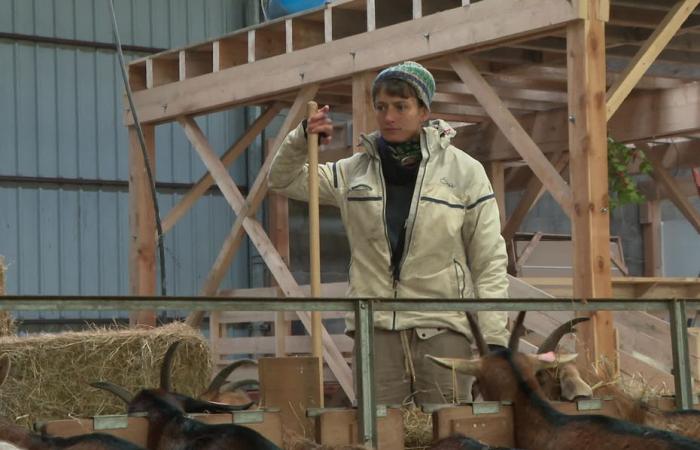In Cunlhat, a women's agricultural collective was created a year ago. Although they encountered some obstacles during their installation, their activity in organic and agroecology is slowly starting to become known.
Company
From daily life to major issues, discover the subjects that make up local society, such as justice, education, health and family.
France Télévisions uses your email address to send you the “Society” newsletter. You can unsubscribe at any time via the link at the bottom of this newsletter. Our privacy policy
In Cunlhat, in Puy-de-Dôme, a group of women is rewriting the rules of agriculture. Far from traditional models, they try to prove that the future of the farm can be thought of as feminine, by combining organic, solidarity and shared governance. Noëlie is part of the collective and works in the breeders' team. The farm has eight partners: six women and two non-binary people. The number of associates has raised many questions with granting agencies. “They really needed to tell us: 'Who is the boss? Who makes the decisions?'” underlines Noëlie Rayssac, member of the agricultural group for joint exploitation (GAEC) La Petite Mouliche in Cunlhat, in Puy-de-Dôme. “We were able to show them that everyone had responsibilities. We have shared governance.”
Despite this, they were able to defend their project and settle down. Boubou is part of the market gardening team. The partners found their farm thanks to an advertisement and the kindness of the former owners. “Despite rumors and thoughts, like 'Why don't you pass on your farm to a farmer's son?', which represents the dominant model of agriculture, we show that no. These people trusted us until the end, and we thank them for it.”
Not all of them come from an agricultural background, but they share the same values: practicing organic farming with respect for life, and believing that there is strength in unity. “We think about eight brains, and it's always richer than one or two brains in the end. It takes time to think collectively. It requires a more complex organization, but it is also richer in ideas and solutions.”
GAEC also produces bread, from cultivation to manufacturing. This is what motivated Romane. “We really wanted to produce cereals, but also to process them for direct sale. We love making bread.”
The adventure began a year ago, and the results so far are positive. Noëlie Rayssac indicates: “We are well established in the region. We are not unemployed. People are quite surprised by the work force we deploy and the results we obtain.”
The collective sells its products on the markets and on the farm, and maintains group life around meals or during meetings.
- -





